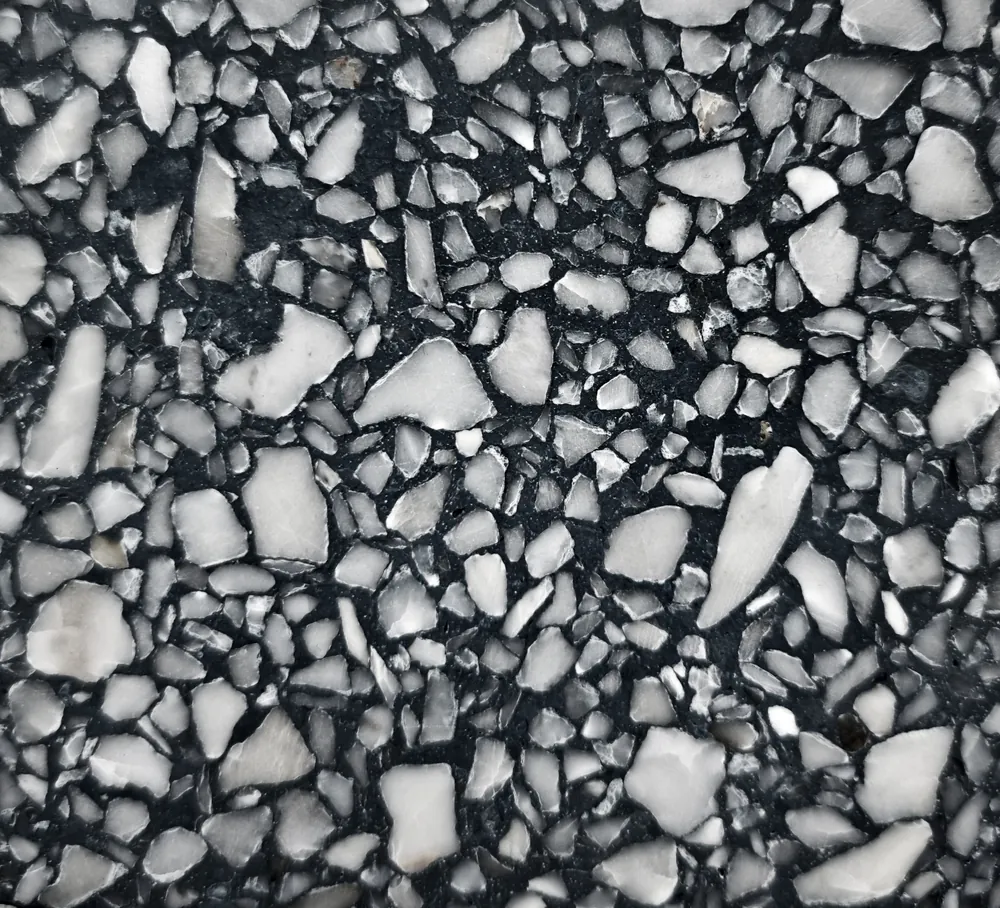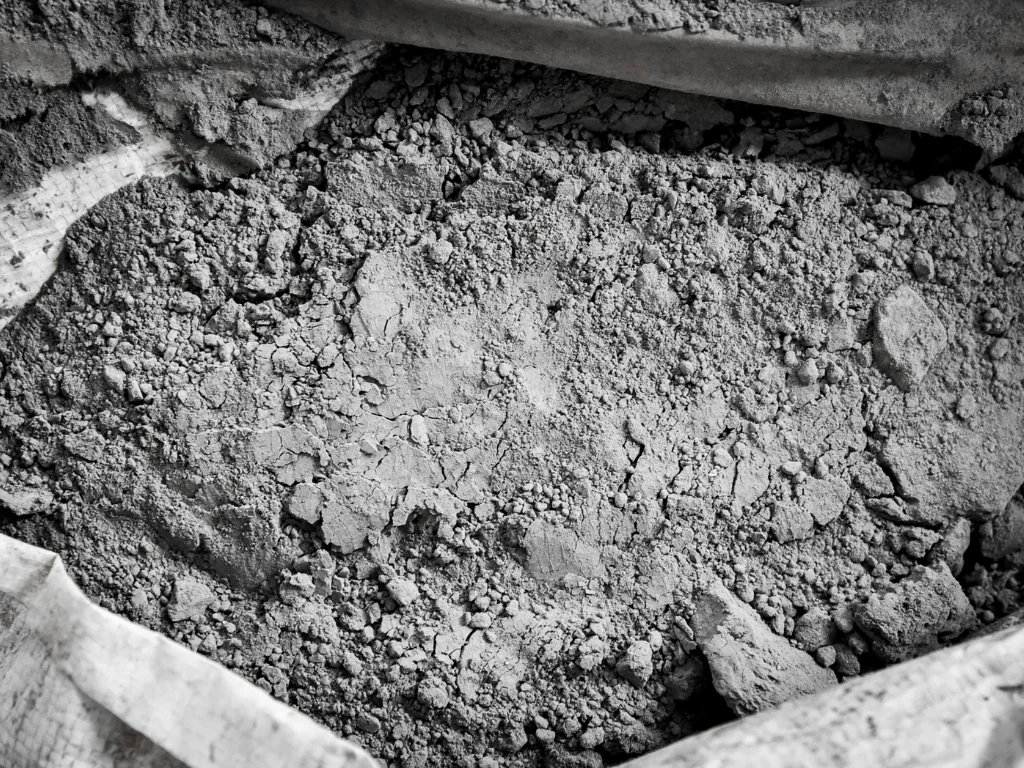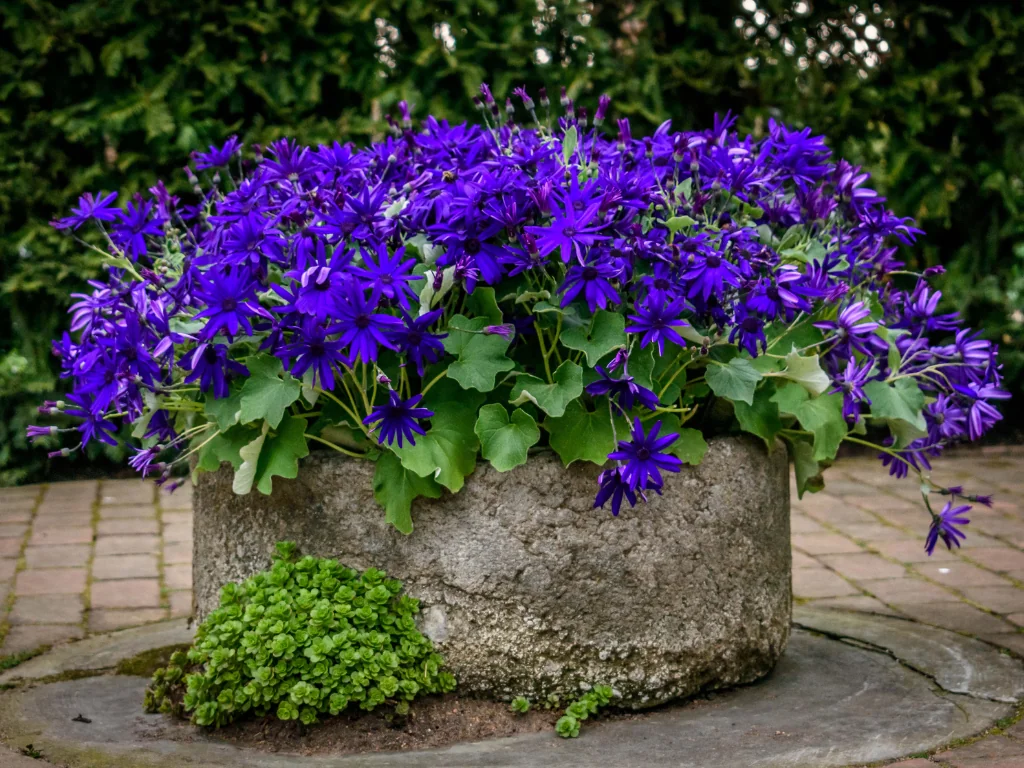A concrete planter is a container made primarily from concrete, a durable and versatile construction material, and is specifically designed for holding and nurturing plants. These planters come in various shapes, sizes, and designs, catering to a wide range of gardening and landscaping needs.
Using concrete in their construction ensures they can withstand outdoor elements, making them suitable for indoor and outdoor environments. Concrete planters are often used to add greenery and aesthetic appeal to gardens, patios, balconies, public spaces, and other areas. Their sturdy structure and ability to be customized make concrete planters a popular choice for both functional gardening and decorative purposes.
Concrete Creations
Materials
Concrete planters are primarily composed of a blend of cement, aggregates (such as sand or crushed stone), and water, forming a dense and robust material that serves as the foundation of these versatile containers. Cement, a binder that solidifies when mixed with water, acts as the glue that holds the aggregates together, resulting in the characteristic strength of concrete. Additionally, reinforcements like steel bars or fibers may be incorporated to enhance tensile strength and overall durability.
Using concrete to make these planters offers numerous benefits, including longevity, resistance to weathering, and the ability to withstand the weight of soil and plants. Furthermore, concrete’s malleability during the casting process enables the crafting of various shapes and designs, making it an ideal choice for both functional and aesthetic applications in gardening and landscaping.
Construction
Concrete planters are typically made by pouring or molding concrete into various shapes and sizes. They are then left to set and cure over a specified period. Once solidified, the planters are removed from the molds, revealing their distinct forms. These planters can be simple and utilitarian, with clean lines and a minimalist design, or they can feature more intricate patterns and details for a decorative touch.
Some concrete planters come with drainage holes at the bottom to allow excess water to escape, while others may be designed with self-watering systems to provide plants with a consistent water supply.
The Logistics of A Concrete Planter
Shipping Raw Materials
Concrete planters are the result of a fascinating process that begins with the transportation of their raw materials to manufacturing facilities. The primary ingredients for creating concrete are sourced from various locations and transported in bulk via freight shipping to these specialized facilities. Cement, the binding agent, arrives from distant quarries, aggregates from nearby mines, and water, the lifeblood of the mixture, from local sources.
Once gathered at the manufacturing facility, these essential components are skillfully combined, molded, and crafted into the timeless and durable concrete planters we’ve come to love. The initial shipping of raw materials lays the foundation for the manufacturing process, allowing for the creation of these structures that bring greenery and elegance to our surroundings.
Shipping a Final Product
Concrete planters must navigate a crucial step in their journey from manufacturing facilities to retail stores – shipping as freight. These substantial and often heavy planters are carefully packaged and transported via freight shipping to ensure their safe delivery to various destinations.
Freight shipping companies play a crucial role in handling and transporting these final products, managing the logistics and supply chain to optimize routes and delivery schedules. Through this intricate process, concrete planters reach their designated stores, making them available to customers who seek to adorn their homes, gardens, and urban spaces with these enduring pieces of art.
Think Outside The Planter
Concrete planters are incredibly versatile and can be creatively repurposed in various ways beyond traditional gardening. Here are some unique uses of concrete planters:
Water Features: Large concrete planters can be converted into stunning water features by adding a recirculating pump and decorative elements like pebbles or aquatic plants. The planter’s depth and durability make it an ideal base for creating beautiful, relaxing water displays.
Seating: Oversized concrete planters, when turned upside down, can serve as seating options in outdoor spaces like parks, gardens, or public squares. Placing cushions or pads on top adds comfort, and their sturdy construction ensures a long-lasting seating solution.
Outdoor Barbecue Station: Transform a concrete planter into a functional outdoor barbecue station by placing a grill on top. The planter’s depth can be used to store charcoal or firewood, while the solid construction acts as a heat-resistant base.
Succulent and Cacti Garden: Utilize smaller concrete planters to create a charming succulent or cacti garden. Their natural texture and earthy appearance complement the desert-like plants, adding an appealing touch to indoor or outdoor spaces.
Outdoor Storage: Use large concrete planters as outdoor storage solutions for gardening tools, firewood, or children’s toys. Their durability ensures that the stored items are protected from the elements.
Ice Cooler: Convert a large concrete planter into a unique ice cooler for outdoor gatherings or parties. Line the inside with a waterproof material, fill it with ice, and store beverages or snacks to keep them cool throughout the event.
Fountain Centerpiece: Smaller concrete planters can be stacked or arranged in a fountain-like design to serve as a captivating centerpiece in a courtyard or garden. Water can flow from one tier to another, creating a mesmerizing and soothing display.
Tabletop Decor: Concrete planters of varying sizes can be used as tabletop decor for indoor or outdoor dining. Fill them with candles or decorative stones to add a touch of elegance to your dining experience.
Birdbaths: Convert a shallow concrete planter into a birdbath by adding a basin or using the planter itself. Place it in your garden to attract birds and create a welcoming environment for local wildlife.
Pet Feeding Stations: Convert concrete planters into raised pet feeding stations, providing a comfortable and elevated space for your pets to eat and drink.
From functional furniture to captivating art pieces, the unique uses of concrete planters showcase their adaptability and potential to enhance various aspects of our living spaces. So, the next time you come across a concrete planter, consider these creative ideas to transform it into something truly extraordinary.
Journey With FreightCenter
FreightCenter stands out as the optimal choice for all your logistics needs, whether you’re shipping raw materials or a final product. With a proven track record of reliability and efficiency, FreightCenter offers unparalleled expertise in streamlining supply chains and optimizing transportation processes. Our comprehensive network of carriers, advanced technology solutions, and dedicated team ensures seamless coordination, cost-effective solutions, and timely deliveries.
When shipping raw materials like aggregates and cement to manufacturing facilities, FreightCenter’s extensive network of carriers guarantees efficient transportation, while our specialized handling expertise maintains the integrity of your essential components. Moreover, when it’s time to ship your finished concrete planters to retailers or clients, FreightCenter’s seamless logistics orchestration ensures that your products reach their destination in pristine condition.
Regardless of the complexity of your shipment, FreightCenter’s commitment to excellence, transparent communication, and tailored strategies make us the ultimate partner to elevate your business’s logistics operations, saving you time, resources, and ultimately enhancing your competitive edge in the market.



